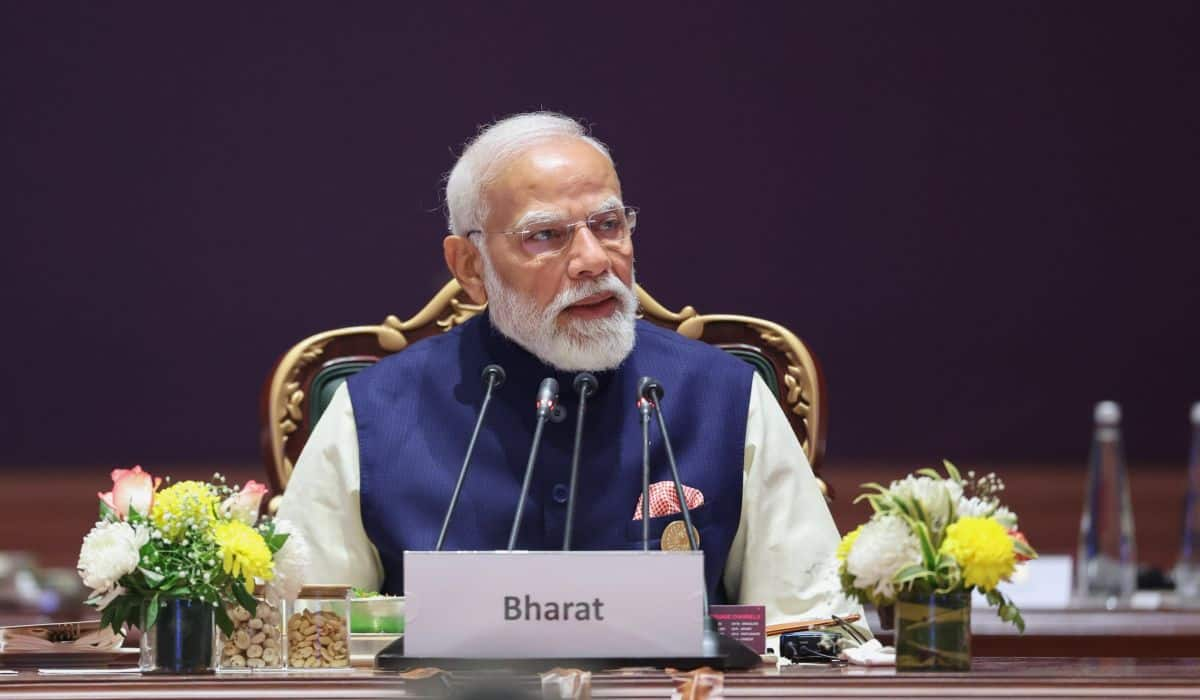India completed vaccination of 100 crore doses on October 21 in about nine months since starting vaccination. The journey from anxiety in early 2020 to assurance has happened, and India has emerged stronger, thanks to the world's largest vaccination drive.
It has been a truly Herculean, bhagirath effort involving multiple sections of society. For any effort to attain and sustain speed and scale, trust of all stakeholders is crucial. One reason for a successful campaign was the trust that people developed in the vaccine and the process followed, despite various efforts to create mistrust and panic. There are some who only trust foreign brands. However, when it came to something as crucial as the Covid-19 vaccine, Indians unanimously trusted
'Made in India' vaccines. This is a significant paradigm shift.
All for One, and One for All
India's vaccine drive is an example of what India can achieve if the citizens and the government come together with a common goal in the spirit of people's participation, or jan bhagidari. Initially, many doubted the capabilities of 130 crore Indians. Some said India would take 3-4 years, while others doubted people coming forward to get vaccinated. There were those who said there will be gross mismanagement and chaos, while others doubted India's ability to manage supply chains.But just like the 2020 national lockdown - janta curfew - and subsequent lockdowns, the people showed how spectacular the results can be if made trusted partners.
When everyone takes ownership, nothing is impossible. There was a lot of pressure from different interest groups to give preferential treatment to them in vaccination. But GoI ensured that there is no VIP culture in the vaccination drive.
In early 2020, it was clear to us that this pandemic will have to be eventually fought with the help of vaccines. We started preparing early. We constituted expert groups and started preparing a roadmap right from April 2020. Till today, only a handful of countries have developed their own vaccines. More than 180 countries are dependent on an extremely limited pool of producers, and dozens of nations are still waiting for the supply of vaccines.
Imagine if India did not have its own vaccine. How would India have secured enough vaccines for such a large population? How many years would that have taken? It is here that credit should be given to Indian scientists and entrepreneurs for rising to the occasion. It is due to their talent and hard work that India is truly aatmanirbhar when it comes to vaccines. Our vaccine manufacturers, by scaling up to meet the demands of such a large population, have shown that they are second to none.
GoI has been an accelerator and enabler of progress. It partnered with vaccine-makers right from day one, and gave them support in the form of institutional assistance, scientific research, funding, as well as accelerated regulatory processes. All ministries came together to facilitate and remove any bottlenecks as a result of the 'whole of government' approach.
In a country of the scale of India, it is not enough to just produce. Focus has to be on last-mile delivery and seamless logistics. To understand the challenges involved, imagine the journey taken by one vial of vaccines. From a plant in Pune or Hyderabad, the vial is sent to a hub in any of the states, from where it is transported to the district hub. From there, it reaches a vaccination centre. This entails the deployment of thousands of trips taken by flights and trains. During this entire journey, the temperature has to be maintained in a particular range that is centrally monitored.
We are the Nation
For this, over 1 lakh cold-chain equipments were utilised. States were given advance notice of the delivery schedule of the vaccines so that they could plan their drives better and vaccines reached them on the pre-decided days. This has been an unprecedented effort in the history of independent India.
All these efforts were complemented by a robust tech platform in CoWIN. It ensured that the vaccine drive was equitable, scalable, trackable and transparent. This ensured that there was no scope for favouritism or jumping the queue. It also ensured that a poor worker could take first dose in his village and the second dose of the same vaccine in the city where he works, after the required time interval. In addition to a real-time dashboard to boost transparency, the QR (quick response)-coded certificates ensured verifiability. There are hardly any examples of such efforts not only in India but also the world.
In my 2015 Independence Day address, I had said that our country is moving ahead because of 'Team India', and this 'Team India' is a big team of our 130 crore people. People's participation is the biggest strength of democracy. If we run the country through the participation of 130 crore Indians, our country will be moving ahead 130 crore steps every moment. Our vaccination drive has yet again showed the power of this 'Team India'. India's success in its vaccination drive has also demonstrated to the whole world that 'democracy can deliver'.
The success achieved in the world's largest vaccination drive should further spur our youth, our innovators and all levels of government to set new benchmarks of public service delivery that will be a model not only for our country, but also for the world.













